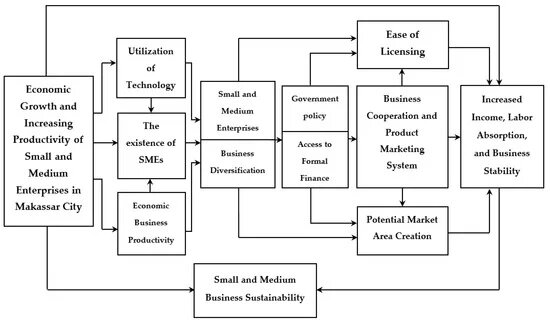Micro, Small, and Medium Enterprises (MSMEs) are often described as the backbone of economies, particularly in emerging markets. These enterprises play a crucial role in fostering economic growth, driving innovation, and creating employment opportunities. In many developing regions, MSMEs are the primary source of income for millions, contributing significantly to GDP and acting as a catalyst for sustainable development. This article explores the vital role that MSMEs play in emerging markets and how they contribute to economic growth and innovation.
Economic Growth: The Lifeblood of Emerging Markets
In emerging markets, MSMEs account for a significant portion of economic activity. According to the World Bank, MSMEs represent about 90% of businesses and more than 50% of employment worldwide. In low-income countries, these enterprises are often the only source of livelihood for many people, particularly in rural and semi-urban areas. By providing goods and services that cater to the local population, MSMEs stimulate demand and create a ripple effect throughout the economy.
Moreover, MSMEs contribute to economic diversification. In emerging markets, economies often rely heavily on a few key industries, such as agriculture or natural resource extraction. MSMEs help to diversify these economies by developing new sectors, such as technology, manufacturing, and services. This diversification reduces dependency on a single industry, making economies more resilient to global market fluctuations and economic shocks.
Innovation: Fueling Progress and Competitiveness
Innovation is a key driver of economic growth, and MSMEs are at the forefront of fostering innovation in emerging markets. These enterprises are typically more agile and adaptable than larger corporations, allowing them to respond quickly to changing market conditions and consumer needs. This flexibility enables MSMEs to experiment with new ideas, products, and services, driving innovation and enhancing competitiveness.
In many cases, MSMEs in emerging markets develop innovative solutions tailored to the specific needs and challenges of their local environments. For instance, in regions with limited access to electricity, some MSMEs have developed affordable solar-powered products that provide sustainable energy solutions. These innovations not only address local problems but also have the potential to scale and impact global markets.
Furthermore, the rise of digital technologies has opened new avenues for MSMEs to innovate. Digital platforms, e-commerce, and mobile technology have enabled even the smallest enterprises to reach new customers, streamline operations, and access global markets. This digital transformation has been particularly significant in emerging markets, where traditional infrastructure may be lacking but mobile and internet penetration is rapidly increasing.
Employment Creation: Empowering Communities
One of the most significant contributions of MSMEs to emerging markets is their role in job creation. MSMEs are labor-intensive and often employ a large portion of the workforce, particularly in sectors such as agriculture, manufacturing, and retail. In regions where unemployment is high, MSMEs provide critical employment opportunities, especially for women, youth, and marginalized groups.
The employment generated by MSMEs goes beyond mere job creation; it also contributes to community empowerment. By providing stable incomes, MSMEs help lift families out of poverty and improve their standard of living. Additionally, MSMEs often invest in local communities, supporting education, healthcare, and infrastructure development, further contributing to social and economic development.
Challenges and the Way Forward
Despite their significant contributions, MSMEs in emerging markets face numerous challenges that can hinder their growth and innovation potential. Access to finance is one of the most pressing issues, as many MSMEs struggle to obtain the funding needed to expand their operations or invest in new technologies. Regulatory barriers, inadequate infrastructure, and limited access to markets also pose significant challenges.
To unlock the full potential of MSMEs, governments, financial institutions, and development organizations must work together to create an enabling environment. This includes improving access to finance through microcredit schemes, developing supportive regulatory frameworks, investing in infrastructure, and providing training and capacity-building programs to enhance the skills of MSME owners and workers.
Conclusion
MSMEs are the lifeblood of emerging markets, driving economic growth, fostering innovation, and creating employment opportunities. By addressing the challenges they face and supporting their development, these enterprises can continue to play a pivotal role in shaping the future of emerging economies. As the world becomes increasingly interconnected, the success of MSMEs in emerging markets will not only benefit local communities but also contribute to global economic stability and prosperity.










